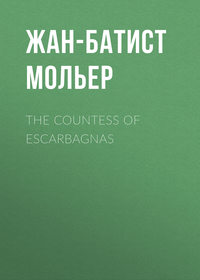Kitabı oku: «The Countess of Escarbagnas», sayfa 4
Bir şeyler ters gitti, lütfen daha sonra tekrar deneyin
Türler ve etiketler
Yaş sınırı:
12+Litres'teki yayın tarihi:
28 ekim 2017Hacim:
21 s. 1 illüstrasyonTercüman:
Telif hakkı:
Public Domain